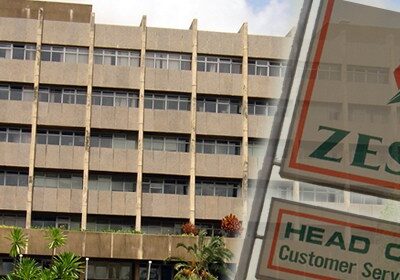The Energy Regulations Body (ERB) claims it has scored many successes in 2023.
Director General, Yohane Mukabe, attributed its successes to the successful approval of the electricity tariffs which he described as historical since the enactment of the Electricity Act No.11 of 2019.
Addressing journalists at end of year briefing, Mukabe said the tariffs were for ZESCO Limited and Northwestern Energy Corporation (NWEC), which he said covered a period of five years from 2023 to 2027.
He revealed that during the year, the Board introduced water pumping tariffs targeting water utilities that were operating water pumping stations at different capacities.
“The objective of capping maximum demand to 5,000 Kilovolt Amps (KVA) is to ensure financial sustainability for the electricity utility companies through cost recovery,” he said.
Further, the ERB capped the maximum demand under the retail customer category to 5,000KVA.
Read more: prices-of-petrol-diesel-others-to-remain-unchanged-in-december-says-erb
On fuel stock monitoring, Mukabe reported that the ERB continued conducting monthly price reviews to ensure security of supply .
“Further, TAZAMA pipeline has been converted into a carrier of finished petroleum products low sulphur diesel while petrol will continue to be ferried by road,” he stated.
On licenses, Mukabe said during the year under review, ERB issued a total of 392 standard licenses with 166 issued in the first half and 224 in the second half of the year.
He insisted that the increase in the number of licenses issued was a testament of the conducive environment for investment in the energy sector in the country.
Mukabe further disclosed that during the year under review, ERB handled 521 complaints and facilitated the resolution of 215, representing a resolution rate of 41.3 percent.
From the total 521 complaints received, 466 complaints emanated from the electricity subsector translating into 89.4 percent of the cases captured.
“The ERB continued to implement the fuel marking initiative in order to mitigate the illegal sourcing of fuel,” he stated.
Mukabe also spoke about fuel marking which aims at curbing adulteration, a vice that compromises the quality of fuel.
He noted that the initiative helped to curb dumping and smuggling of fuel into the country, being vices that promote uneven competition in the petroleum sub-sector.
During the period under review, a total of 1,278,372 cubic meter of fuel was marked and 5,475 samples were collected and tested at filling stations and consumer facilities with a view to ascertain compliance downstream, he claimed.
“An overall compliance rate of 99.2 percent was attained, which was above the set target of 97 percent and ERB remains resolute to ensure 100 percent compliance and has since commenced enforcement action against licensees that were found to be non-compliant,” he said.
WARNING! All rights reserved. This material, and other digital content on this website, may not be reproduced, published, broadcast, rewritten or redistributed in whole or in part without prior express permission from ZAMBIA MONITOR.












Comments